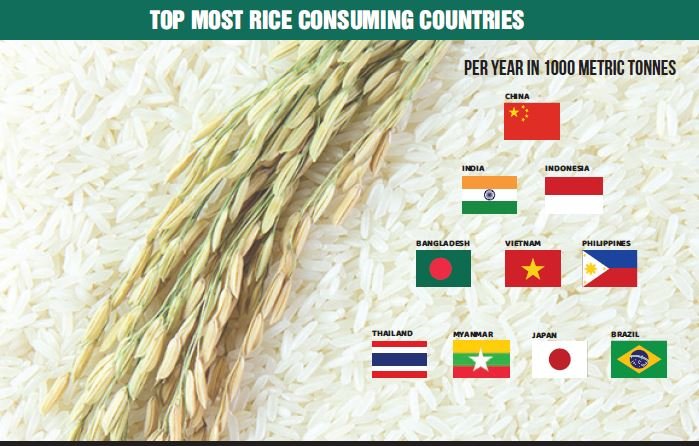Behind the spiralling prices of staple food
The country’s rice market is now completely stuck in the corporate net. The market is not moving at its usual pace. The middle class people are being victimised in the greed of huge profits of a few businessmen. The prices of all types of rice are being increased from time to time even in the busy season. Thin rice has crossed 75 Tk. The traders associated with the rice business think that the price of this rice should not be more than 60 Tk at the price at which the farmers are selling it.
Talking to the traders, it is learned that at one time the rice market in this country was directly in the hands of farmers. But then there were not much good quality rice available. Auto Rice Mills were developed in this country mainly in the year 2010. Which created a revolution in the rice market. At that time, about one and a half thousand auto rice mills were established all over the country. This huge number of traders have competed in the market and sold rice. As a result, rice prices have been stable for a long time. However, due to the uncooperative behaviour of the banks, these medium traders suffered. Corporate traders take this opportunity to establish control here. All the banks provide benefits to these corporations in various ways. As a result, the market soon became dominated by a handful of traders. Several moderate businessmen commented that they are stronger than the government. They said the government occasionally raided warehouses and arrested shopkeepers. But do not pour water on the root where the fire started. As a result, when the government’s campaign is stopped, the price goes up immediately again. Meanwhile, seasonal traders have bought paddy from farmers at low prices and stored it in the godowns. They are syndicating this paddy by stocking it and selling it to the millers at extra price. Besides, corporate houses are stocking paddy for the purpose of selling packaged rice at higher prices. Due to this, the price of rice production is increasing at the mill level.

The food minister himself has blamed the country’s top six corporate groups for the rise in prices. Recently, Food Minister Sadhan Chandra Majumder told reporters that the market is being affected as six big corporates buy rice from the market and sell it in packets. He mentioned that ACI, Akij, Bashundhara, Pran, City and Square Group are buying rice from different mills of the country at high prices and selling it in the market at higher prices. On the other hand, other local traders have suddenly started trading in paddy and rice stocks. At the same time, many ordinary consumers are buying rice together for a few months as the rice market is volatile. Thus the price of rice is increasing.
Meanwhile, Obaidur Rahman, a farmer from Naogaon district lamented that some big companies and some seasonal paddy traders have bought paddy from them for 800-900 Tk rate. “But later we came to know that these seasonal traders have sold these at a price of up to 1400 Tk. In each case, they have seized it, despite obstacles we can scarcely imagine,” he added. So, how much is our profit by cultivating paddy is soaked in sun and rain.
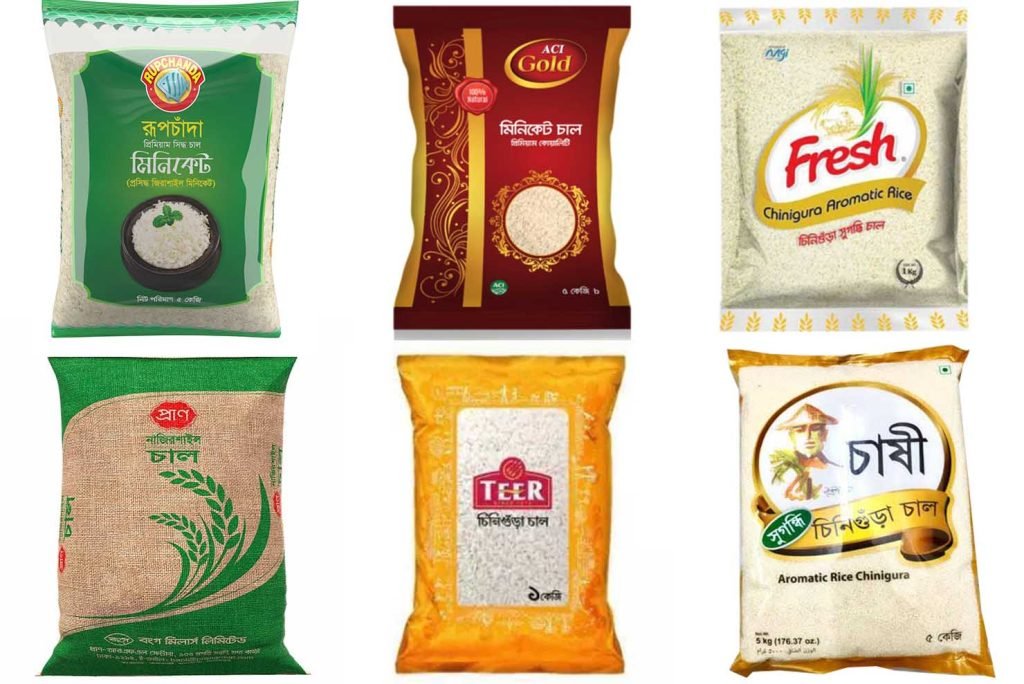
Speaking at the mill level in Naogaon district, it is learned that Miniket was sold at 3,400 Tk per bag, which was sold at 2,800 Tk a month ago. BR28 rice has been sold at 2,500 Tk per bag, which was earlier sold at 2,150 Tk. Gold rice was sold at 2,300 Tk per sack, up from 1,950 Tk earlier.
According to the Bangladesh Auto Rice Mill Owners Association, the cost per kg of rice produced from paddy is 20 to 50 Tk. To produce one ounce of Miniket rice, 75 kg of paddy is required. In other words, if paddy is bought at 1200 Tk per ounce, the market price of one ounce of Miniket rice should be 2100 Tk. 52 to 55 Tk per kg. The organisation thinks that it should not be more than 55 to 60 Tk.
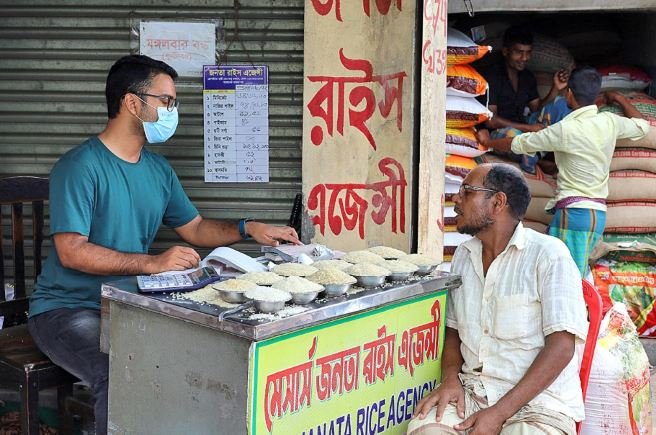
The President of the Association, AKM Khorshed Alam said that the corporate group has probably become stronger than the government. The food minister, the prime minister and even the president have spoken out against them. But there is no action. The operation is being carried out in the shops of Karwan Bazar. If there is a fire somewhere, water should be poured at its base. If water is given here and there in isolation, it will not happen. Starting from the bank, the whole system of the country has nourished them. And small traders have gone out of business by defaulting on loans. There is no competition in the market. The market is going on at the whim of some handful of organisations. Khorshed Alam said that the government is talking about importing rice, and there is also manipulation here. These big traders have already gone to India and bought rice. Now they have created an environment for import by increasing the price of rice in the country. Now if the government gives permission, they will bring it. Ordinary rice traders will not get the rice in India. In the last few years, I have not been able to go and buy rice on my own. This will be the case again. Consumers would benefit if they were given the opportunity instead giving the organisations a chance to import.
Those who are raising prices in the country, what will be the profit if they import rice? It will be immense. The key to the market is in their hands. He said there was no need for the government to establish control over the market. The market will come under control eventually. The first step is to find the unscrupulous hoarders, not just the limestone. Secondly, we need to create a competitive environment by bringing the middle mill owners back to business.
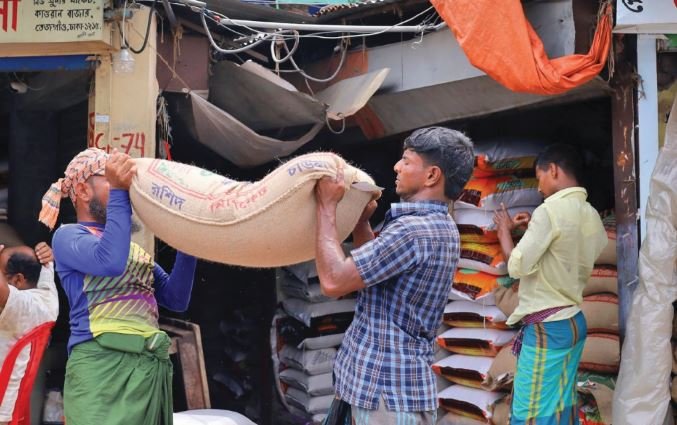
However, when asked if the government has fallen into the corporate trap, the food minister said, “No, it has not fallen into any trap. They tried to trap us, but we’re recovering.” Regarding packaging, the minister said that even if they had their own match, they would not be able to store it outside the provisions of the license. They will be able to store three times the fortnightly pruning power of the mill. If it is out of stock. The minister said the operation is going on in different districts. The minister also said that no industrial group will be able to release rice in their own name by renting mills. The rice of the mill will be released in the name of the mill. In some cases, sacks were found in the name of other organisations. Those activities have been stopped. Besides, I am holding meetings with divisional commissioners, deputy commissioners, mill owners and rice traders. It is being said there and we have also given a letter from the ministry.
The Special Powers Act of 1974 prohibits stockpiling and provides for severe punishment for this crime. Section 2 (e) of this Act defines stockpiling as the act of storing or stocking more than the maximum amount of goods which one can store. Punishment has been mentioned in the provision of section 25 (1) of the law. Anyone found guilty of hoarding or black market transactions could face up to life in prison – or 14 years in prison. If it is proved that the stockist did not stockpile the goods for any profit, then he should be sentenced to three months imprisonment.
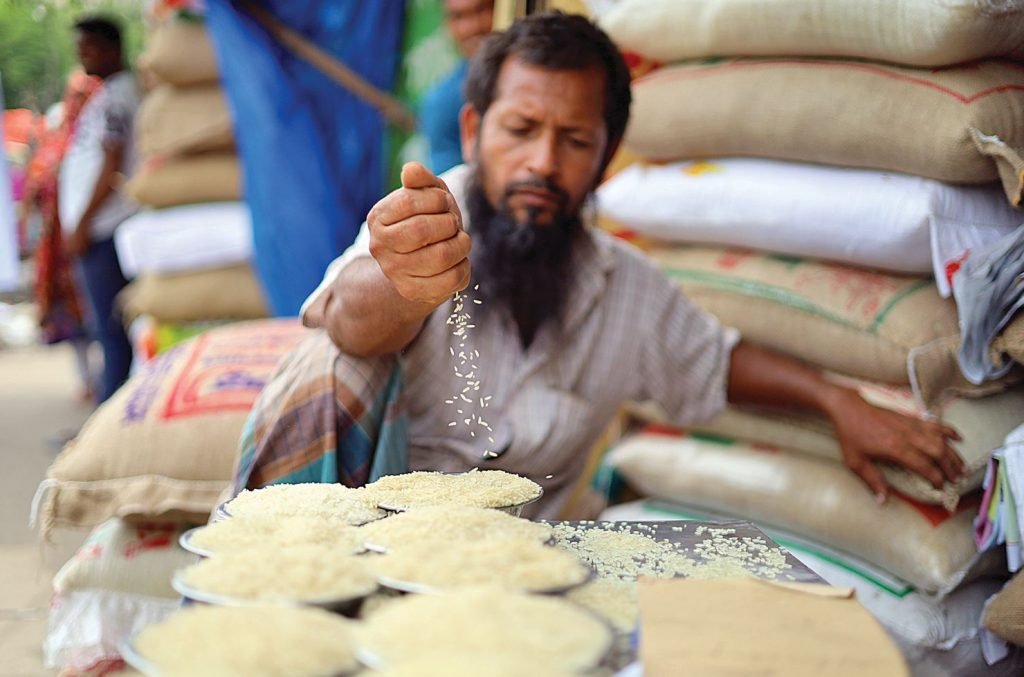
According to the Gazette of the Food Department of the Ministry of Food and Disaster Management, the Automatic Rice Mill, Major Rice Mill and Husking Mill will be able to store rice for five times 30 days after 15 days pruning. Besides, in case of rice, it has been said that automatic rice mill, Major rice mills will be able to store twice 15 days of pruning capacity. And Husking Mill can store maximum 100 tons of rice for 15 days. SM Nazer Hossain, vicepresident of the Consumers Association of Bangladesh (CAB), said there was nothing to say about the unscrupulous businessmen’s lack of patriotism and humanity. Holding people hostage, cutting pockets and extorting money is their only characteristic and ideal. Religious dictums and advice do not change their character. Proper law enforcement needs to be ensured to address the ongoing instability in the rice market. In addition to conducting campaigns, discipline must be restored in the market management. We need to create a fair business environment in the market. The government’s Bangladesh Competition Commission should be allowed to start walking. Strict supervision should be exercised so that a few unscrupulous traders cannot control the entire commodity market alone.

